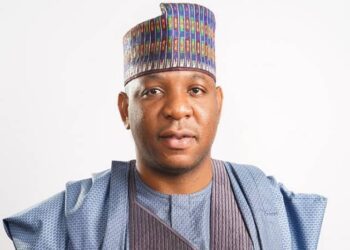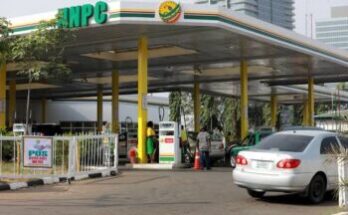The federal government has earmarked the sum of N6.72 trillion for payment of fuel subsidy in the 2023 budget, Minister of Finance, Budget and National Planning Zainab Shamsuna Ahmed has said.
The minister said this at the Public Consultation of the Draft 2023–2025 Medium Term Expenditure Framework and Fiscal Strategy Paper (MTFF/FSP) Thursday in Abuja.
Mrs. Ahmed explained that the government took the decision based on two scenarios.
She said the deficit underscored the fiscal challenges confronting the federal government.
The minister also announced that the Nigerian National Petroleum Company Ltd (NNPCL), which had funded the fuel subsidy until last month, would henceforth leave that responsibility to the federation.
This, she said, would even create a greater strain on the fiscal position of the federal government, describing fuel subsidy as unsustainable.
On subsidy
Speaking on the subsidy, the minister painted two scenarios, stating that the government had projected fiscal outcomes in the medium term under two scenarios based on the underlying budget parameters/assumptions.
Under the first scenario, the minister said: “The subsidy on PMS is estimated at N6.72 trillion for the full year 2023. It will remain and be fully provided for by the NNPC on behalf of the federation.”
On the second scenario, she said: “Petrol subsidy will remain up to mid-2023 based on the 18-month extension announced early 2021, in which case only N3.36 trillion will be provided for.
“Both scenarios have implications for net accretion to the Federation Account and projected deficit levels.
“There will be tighter enforcement of the performance management framework for Government Owned Enterprises (GOEs) that will significantly increase operating surplus/dividend remittances in 2023.”
Ahmed further said except the subsidy is removed, government expenditure would be funded by more borrowing, going forward.
“And that’s why it’s important for us to consider this issue of removal of subsidies very seriously,” she said.
The minister disclosed that as at April 30, 2022, N1.23 trillion was realised out of the pro rata projection of N3.12 trillion, representing a mere 39% performance.
Despite higher oil prices, oil revenue underperformed due to significant oil production shortfalls occasioned by oil production shut-ins resulting from pipeline vandalism and crude oil theft; and high petrol subsidy cost due to higher landing costs of imported products.
The federal government is projecting to fund fuel subsidy with N4 trillion. However, the International Monetary Fund (IMF) warned Nigeria’s fiscal authorities that petrol subsidy may rise to N6 trillion.
Agba cautions
Responding to questions on the subsidy payment, Minister of State for Budget and National Planning Prince Clem Agba insisted that except the subsidy payment was stopped, the federal government may not be able to executive capital projects in 2023.
He also said governors and labour leaders were always backing subsidy removal in-house and say something else to Nigerians.
According to him, the country was eating away its future with the continuous payment of fuel subsidy.
“Finally, it is difficult to understand a situation where citizens say that they want an omelet and then when the government wants to break eggs so that they can produce they say don’t break the eggs.
“So, it’s a decision that Nigerians will have to take because if you look at scenario one, it means that we will not have any capital expenditure in 2023. There’ll be no capital expenditure at all, and taking care of recurrent expenditure will be a huge challenge with a scenario 2 where we’ll say let’s take it out to June. It means we only have about one trillion left for capital expenditure.
“And when you look at our budgets over the years, we have tried to ensure that the minimum capital that was spent is about 30% for the project, but this doesn’t meet up to our expectation. So, the answer to this really lies in what the citizens want.
“Unfortunately, all those who agree with our in-house that we should remove the subsidy; all the political parties, the governors in the country, the labor unions, NLC, TUC, party, you see, when they come up to the public, they will say don’t remove the subsidy but behind the scene when they see the books they understand that it has to be done.
“But maybe out of lack of patriotism or in order to promote themselves or their parties, they say it’s the government that wants to punish the people. So, Nigerians really need to decide because if we must have a future and subsidies to go now.”




